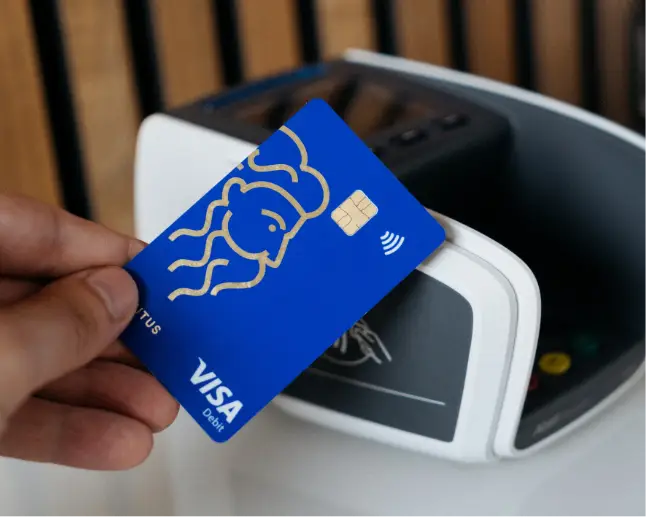The Fintech industry is in an exciting and booming era, with startups racing to meet the ever-increasing demands of a tidal wave of consumers for whom the ability to move money seamlessly and instantly is the norm. And in the wake of Covid-19, digitisation is being increasingly adopted by even the most hardened devotees to notes and coins. Our banking interactions are becoming more personalised and tailored to us as digital individuals and, from buying to borrowing and everything in between, there’s a plethora of fintech innovations … and tomorrow there’ll be another.
The same cannot be said for B2B, which has been considerably overlooked in the fintech frenzy. To say development has been sluggish compared to B2C would be an understatement. For example, globally digital B2B payments in all industries has significantly lagged behind B2C, with approximately one third B2B digital payments, versus two thirds B2C. And this neglect is also true for other key business financial processes, such as reconciliation, invoicing, lending, and reward.
Although consumer fintech has been the driving force for innovation in banking thus far, the market has become crammed and increasingly difficult for fintechs to truly differentiate themselves. Now where a gap still exists and there still remains real opportunities to innovate are in the B2B market as businesses are seeking digital solutions to optimise operational processes, gain a competitive edge, as well as fulfil regulatory requirements. All this considered, we can safely predict that the budding B2B market is now set to bloom.
Fintechs, who are adept at operating in creative environments, have a distinct advantage here over incumbents. The huge disruptions we have seen in the B2C market by the non-bank players has forced traditional banks to keep up by investing heavily in digital B2C solutions. We are now on the cusp of witnessing this cycle repeat itself in the B2B space.
The fintech champions of this market transformation will be those who understand and build solutions to address the complex and inter-dependent needs of businesses, for which siloed solutions are costly and inefficient. Businesses require a more holistic approach, addressing a complimentary combination of needs – all operating within the latest regulatory frameworks. And of course, any new digital service or application must make sense to the bottom line in order to justify the cost of implementation.
So, what will be the key innovations changing the B2B landscape?
Digital Payments becomes the B2B standard
Despite the wide availability of technology to enable B2B digital payments, many companies’ finance and accounting departments have held on to their tried and tested payment options of cheques, cash and traditional credit cards. This is becoming unmaintainable given the momentum towards contactless, and businesses are switching to digital in their droves as products, particularly from non-bank startups, which are more intelligently addressing their virtual needs.
Virtual expense cards become mainstream
Essentially a prepaid card for employees, virtual cards are an excellent example of digital innovation meeting a specific business need, but also offering significant additional benefits leading to better business outcomes. Virtual expense cards add a more sophisticated layer of control for finance departments, effectively approving a transaction before it takes place through only generating a card number – which can be used over the phone and online – when it is required, allowing a finer detail of expense control than ever before. As no card details are shared with the employees or the merchant, all parties are better protected from fraud. With new entrants already carving out success in this space, virtual expenses are set to rapidly become mainstream for businesses dealing with expenses like hotel and travel bookings.
Borders will no longer be a barrier
The growth of a global economy, as well as the recent steep rise in B2B e-commerce, means the increasing need has never been greater for fast and secure cross border payments to suppliers and employees overseas. Currently, only a small fraction of the approximate $10 trillion cross border B2B payments every year are digital, leaving businesses with the frustration of delays in making and receiving cross border payments, which in return impacts heavily on their cash flow.
Conflicts and trust issues may also occur, say, when an overseas supplier requires payment on dispatch of a product, and the buyer prefers to pay on receipt.
Digitising cross border payments is only one part of the solution – we are now seeing fintech innovations that are defining an entirely new payments ecosystem between businesses and continents. Integrating payments into a full workflow solution means that key elements, such as Smart contracts, financial management and accounting systems can be fully integrated to automate operational flows, improve internal processes, and reduce allocation of unnecessary resources. The winning formula in this space will be driven by the ability to apply digital solutions that can simultaneously solve multiple business problems.
B2B lending
Access to funding, particularly in the wake of the 2008 financial crisis, has meant laborious and complex application processes that are often rejected. Small and midsize businesses in most need of dynamic credit have found themselves alienated by banks. Jumping in to fill the gap are fintechs who are offering streamlined applications and swift underwriting decisions. We have seen an explosion in such lending to consumers, and this is now set to be mirrored for businesses.
The common denominator through these trends is the ability of a product to offer a suite of harmonious, tangible business benefits. However, the implementation of such end-to-end solutions is complex and requires relevant knowledge of the payment ecosystem and the understanding of the regulatory requirements before even launching a new product to market, that many Fintechs may not be aware of, or have not been advised on.
Working with a well-connected payments solutions provider, like TransactPay, allows cherry-picking of the right partners, piecing them together as one complete jigsaw that will transform an idea into a feasible innovative product that businesses need and want.
Details
Date
2 Feb 2021
Category
Thought Leadership
Author
TransactPay
Get in touch
Looking to go cardless? Want to work with a leading European e-money institution that will help your payment solution become a success? Get in touch!


